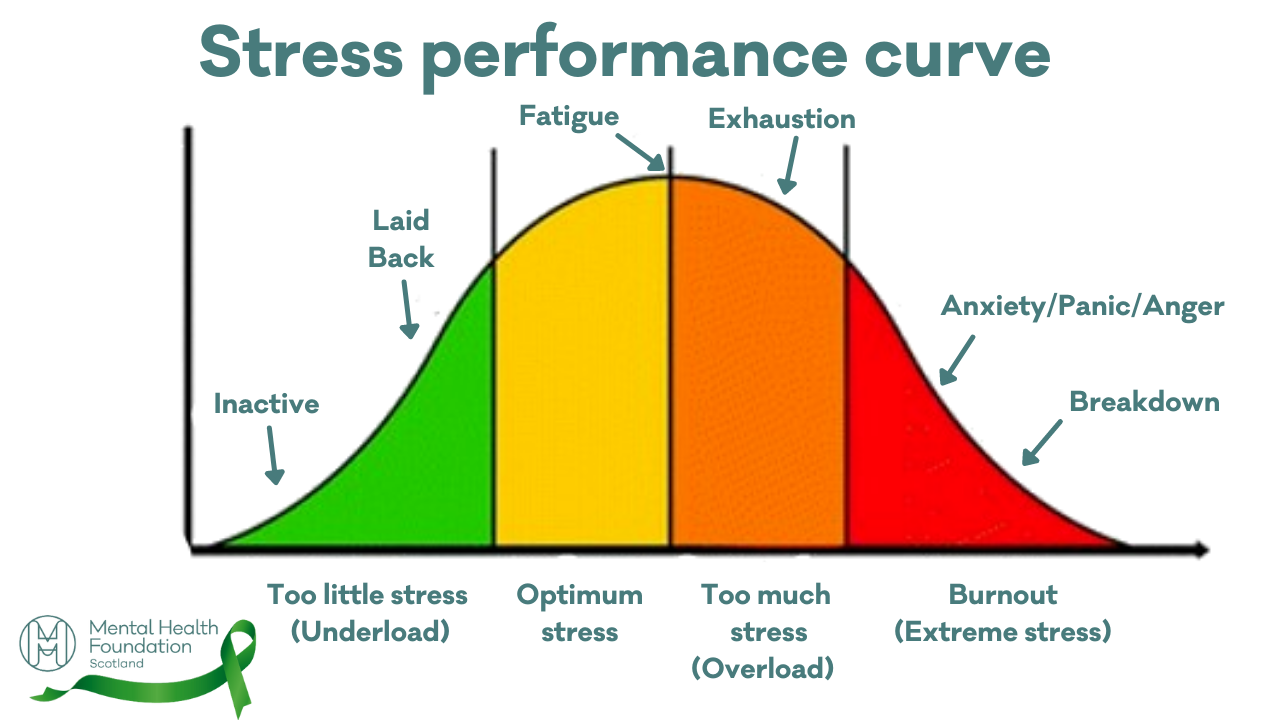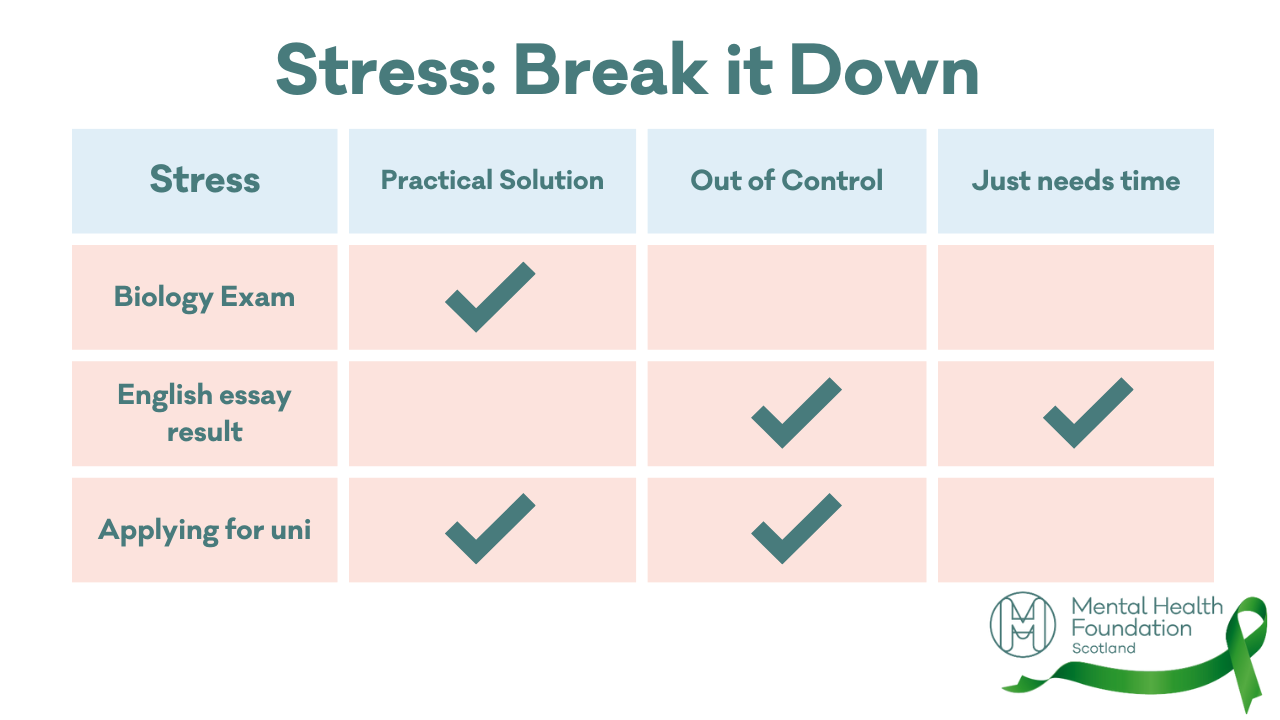What is stress?
Stress is a feeling of being under intense pressure. We all experience stress, it is a completely normal part of life. We can’t always avoid it completely, but what’s important is how we manage it. Everyone deals with stress in different ways and stress looks different for everybody.

This image above is the stress performance curve, which shows how stress can actually be helpful for us as it motivates us and helps us get things done. What we are aiming for is this yellow section, the ‘optimum’ stress, where we aren’t totally inactive, but we’re also not exhausted or experiencing extreme anxiety and becoming overwhelmed.
Our time at school, in particular our exam years, can be our first big experience of stress. It’s important and helpful to be able to recognise the difference between healthy and unhealthy feelings of stress, so as not to let them take over.
When stress takes over, it can become overwhelming and we may feel we’ve lost control of things.
If we don’t learn how to manage stress in ways that work for us, it can stop us from enjoying life.

This simple activity shown above can be done to help us recognise what is stressing us out and figure out whether it is something we can resolve:
- Is it something that has a practical solution? Could I ask someone for support to help me do that?
- Is it something that is out of my control and I can’t actually change?
- Is it something that just needs time to resolve itself or for me to feel better?
It is helpful to do this exercise so we know whether there is anything we can do to fix the thing that is stressing us out, but there isn’t always a solution for fixing the problem that we can influence. In those situations, there are things that we can do that will help us manage the stress we are feeling and make us feel better.
The Mental Health Foundation Young Leaders came up with these 8 top tips for managing exam stress:
- Be kind to yourself: be patient with yourself and use kind language when you are doubting yourself or feel frustrated – it matters for our mental health.
- Step away from your books: plan regular breaks into your revision schedule, and try to get outside when you can – it really helps with focus.
- Protect time for yourself: plan in little things to look forward to that you enjoy – it helps our mood and increases our productivity when we are studying.
- Focus on the bigger picture: remember that exams are not the only measure of success, there are lots of things that make you, you.
- Prioritise your wellbeing: keep yourself mentally and physically healthy during this busy time – try to eat well, stay hydrated, move your body and get good quality sleep.
- Take one step at a time: take every hour or day at a time and try to stay present in the moment. Practising mindfulness can help with this.
- Find your rhythm: create a plan, list or timetable that works for you – make sure to include those breaks to keep your mind balanced!
- Reach out to your support network: reach out to people you trust in your network, remember you are not alone in this.
When we get busy and are feeling stressed it may be hard to remember these top tips and put them into action. You can use the images below to draw up your own Coping with Stress plan to look back on to help you put in place good practices to support your mental health and manage any stress.

You can stick this up in the space you study to remind you or add to it when you come up with new ideas.
Find out more
Visit our AyeFeel page for loads of information and support for mental health and wellbeing.
